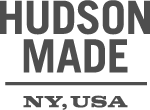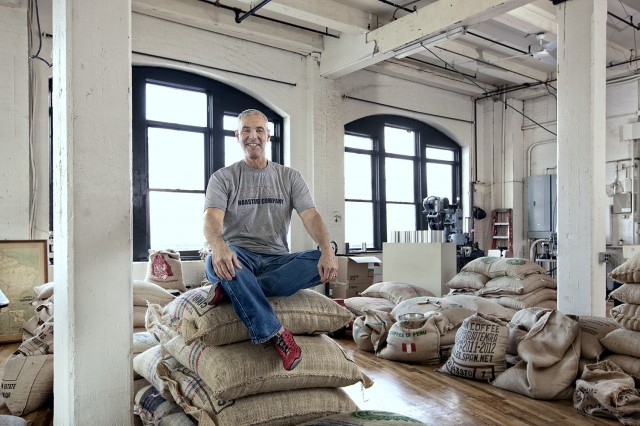The people behind the Brooklyn Roasting Company and the products they make may typify the Ralph Waldo Emerson axiom, “Life is a journey, not a destination.”
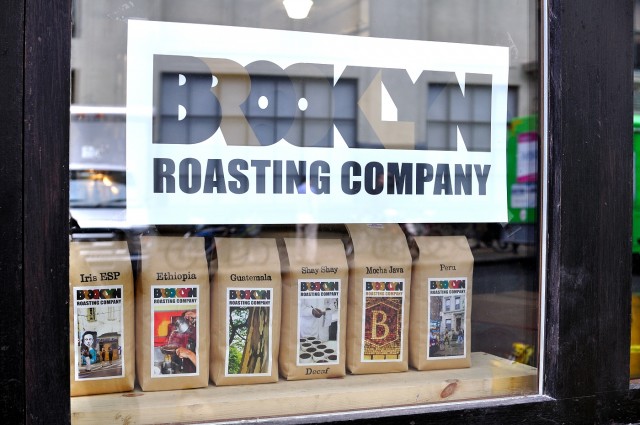
Brooklyn Roasting Company’s DUMBO storefront. Image Source: Flickr
Called the “Hardest Working Cup” by Off Track Planet in its highlights of New York’s 10 Best Cafés in 2013, Brooklyn Roasting (BRC) is an ongoing journey that began with a simple love of coffee.
Founded in late 2010 by Jim Munson and a team of talented co-owners, BRC has already become become a landmark coffee shop in Brooklyn’s hip DUMBO neighborhood and earlier this year introduced a new outpost near the Brooklyn Navy Yard.
Walking toward Brooklyn Roasting on an otherwise blithe Tuesday mid-morning on cobblestoned Jay Street heading toward the East River, you’ll discover a steady stream of DUMBO professionals spawned by the area’s high-tech boomlet and stroller-steering moms and dads. Upon entering the industrial chic shop, my nose, surprisingly, is not the first sense to kick in. My eyes perk first upon seeing the Loring Kestrel coffee roaster and burlap bags of coffee beans on pallets, each awaiting their turn. The industrial gurbling from the roaster and the various coffee machines expertly manned at the counter competed valiantly with the Rolling Stones’ “(I Can’t Get No) Satisfaction” for aural attention. Only then does the telltale smell of brewing coffee register. The shabby- chic décor sweeps me in, alongside old-fashioned counters, aged floors, exposed ceilings and doughnuts that enticingly beckon.
When I ask to see co-owner and chief roaster Michael Pollack, I am directed to a sitting area in a far corner. On a plush-but-worn orange couch on one side of a huge coffee table made from a re-purposed factory door, there sits Jim Munson and Michael Pollack, engaged in a polite conversation with a third man. After a few minutes of exceedingly earnest conversation and my steady presence, the third fellow leaves after exchanging business cards. I apologize for intruding but am reassured that they were only doing what they do best: Keeping the doors open to new opportunities.
“Who knows?” Pollack says, referring to the departed candidate. “That guy wanted to talk about a BRC salad dressing, and because we gave him the time, we might find an entirely new business line.”
The journey to this popular startup coffee enterprise officially began for Jim and Michael and their other partners three years ago, when, at age 59, Michael responded to Munson’s “Help Wanted” ad looking for a coffee intern. After a successful business career, Pollack had found a passion for home-roasting his own coffee beans in the late 1990s after his first foray into buying beans on the then-fledgling Internet.
“I had bought this sample package of nine different kinds of coffee from all around the world, and when the first package came, there were raw beans inside,” Pollack says. “I would rather do without than compromise if there’s a way to get what I think is the best experience, so I taught myself how to roast the coffee beans to get truly the best flavor.”
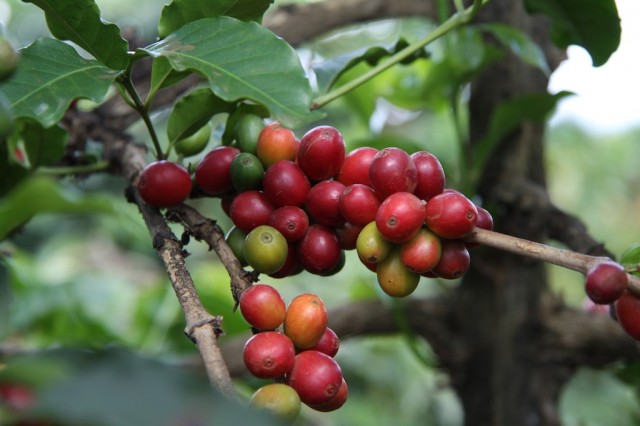
A budding coffee plant in Ndumberi, Kenya. Image Source: Flickr
This was just as Starbucks was bringing the concept of gourmet coffee to the masses. His own passion enabled him to start a little mail-order side business supplying other early adopters, and he developed his own style of roasting and extracting the best from the beans. So three years ago, when he answered an ad to be a coffee intern, you could say lots of things on his résumé caught Munson’s eye.
“The guiding premise of everything we do here can be distilled into one word: Yes,” Pollack says. “I said yes to this opportunity, and Jim said yes to my experience.”
Three years later, BRC has 55 employees, and Pollack oversees the roasting of 10,000 pounds of coffee beans every week. Nearly all (95 percent) of the beans are certified Fair Trade, Rainforest Alliance and/or Organic.
Chérmelle Edwards, a self-described uber-consumer of all things cultural, is the woman behind SMDLR, a Web magazine in photo essay and blog post form documenting indie coffee culture. She wandered in to Brooklyn Roasting fairly soon after its opening and is still drawn to its commitment to the journey.
“The connection about consuming a drink and knowing there was someone behind it is important to us,” she says, citing author Seth Godin’s recent discussions about the shift from an industrial economy to a connection economy. “The Brooklyn Roasting space is always changing, evolving, transforming. It’s a beautiful metaphor for coffee—it’s always changing, in the field, when it matures, how it goes through this journey to your cup.”
Pollack travels the world to the beans’ countries of origin, from South America (he recently returned from Peru, to Southeast Asia and Africa. He’s passionate yet practical about the workers there and the lives they lead servicing the world’s second largest trading commodity (after oil).
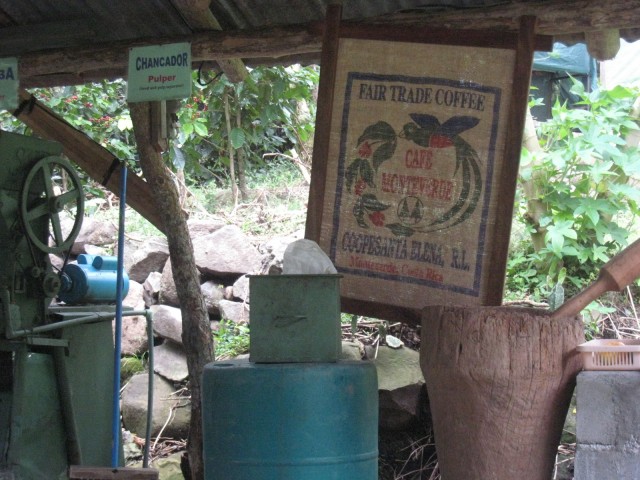
A fair trade coffee plantation in Monteverde, Costa Rica. Image Source: Flickr
“Nearly all our coffee is picked by hand,” he says. “It’s unbelievable what they do to get coffee from the field to our tables, and we never want to lose sight of that. Even though coffee is traded like a commodity, making coffee is not a commodity. It’s a craft, and we respect that.”
Many of the co-operatives BRC works with benefit by getting money back on each can of beans sold to support workers on the ground. And Pollack also views BRC’s work as a calling to introduce American palates to coffee from the entire global market.
“Where else can you have the opportunity to try a coffee like Panamanian Esmeralda?” he asks, pointing at what could be the world’s most expensive coffee at $80 a pound. “For an extra 50 cents, you can try a cup of that here.”
The entrepreneurial spirit drives the entire BRC team, always making them take a meeting or listen to a business idea from one of their partners. In addition to the idea of a salad dressing (“Coffee-infused balsamic vinegar would taste really good, don’t you think?” Pollack asks), there was a limited-edition coffee liqueur made by a Red Hook distillery that he’s trying to bring back, and there’s the ongoing relationship with their dairy producer, Battenkill Valley Creamery, for its specially blended 7 percent butterfat cream/milk designed specifically for BRC.
“We tasted every milk available in the state of New York, and the sweetness of their milk went beautifully with the roast profile of our coffee,” Pollack says.
The journey continues. Pollack laughs when I ask what’s next for Brooklyn Roasting.
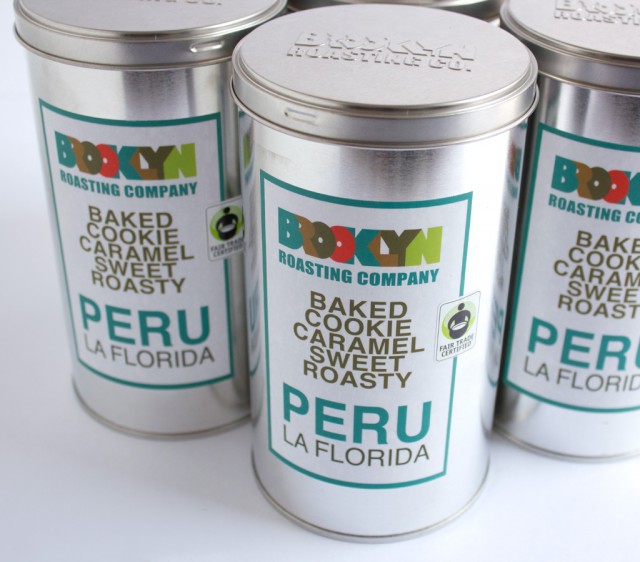
The Brooklyn Roasting Company offers Fair Trade, Rainforest Alliance, and Organic certified and sustainable coffees.
“One of our employees who’s been with us since the beginning asked me a few weeks ago what Brooklyn Roasting is going to be like in two years,” Pollack says. “I have no idea. But the nice thing is that we give people we work with—our employees, our business partners, our growers, even our customers—more opportunities than they’re going to get anyplace else.”
Coffee watcher Edwards concurs.
“BRC has the ability to bring people in, to communicate a feeling about their brand that makes you want to be in their space,” she says. “I never know what I’m going to get when I go in there except for a great cup of coffee.”
Shop our complete collection of coffee roasts and other kitchen accessories here.
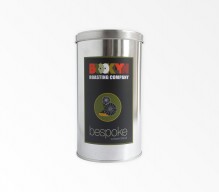 |
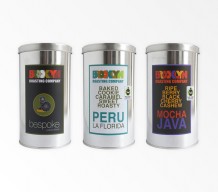 |
 |
| Brooklyn Roasting Trio |
Laura Grimmer is a professional cook and sommelier who lives to eat, drink and provide sustenance. She came late to the culinary world, selling her PR firm and enrolling at the French Culinary Institute because of a borderline fixation on master chef Jacques Pépin. She left cooking school a classically trained chef with a deeply seated appreciation for tradition in the kitchen. www.perfectpairnyc.com
